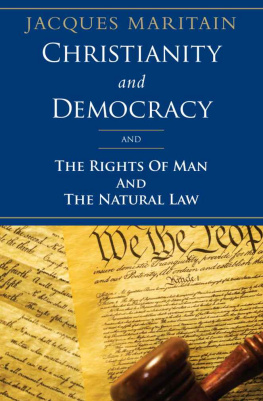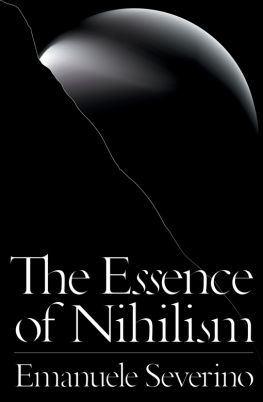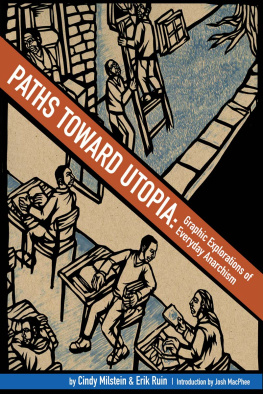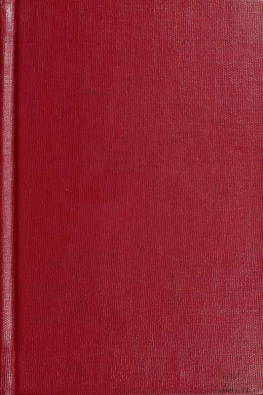Maritain Jacques - Existence and the Existent
Here you can read online Maritain Jacques - Existence and the Existent full text of the book (entire story) in english for free. Download pdf and epub, get meaning, cover and reviews about this ebook. City: New York, year: 2015, publisher: Paulist Press, Inc., genre: Science. Description of the work, (preface) as well as reviews are available. Best literature library LitArk.com created for fans of good reading and offers a wide selection of genres:
Romance novel
Science fiction
Adventure
Detective
Science
History
Home and family
Prose
Art
Politics
Computer
Non-fiction
Religion
Business
Children
Humor
Choose a favorite category and find really read worthwhile books. Enjoy immersion in the world of imagination, feel the emotions of the characters or learn something new for yourself, make an fascinating discovery.

- Book:Existence and the Existent
- Author:
- Publisher:Paulist Press, Inc.
- Genre:
- Year:2015
- City:New York
- Rating:4 / 5
- Favourites:Add to favourites
- Your mark:
- 80
- 1
- 2
- 3
- 4
- 5
Existence and the Existent: summary, description and annotation
We offer to read an annotation, description, summary or preface (depends on what the author of the book "Existence and the Existent" wrote himself). If you haven't found the necessary information about the book — write in the comments, we will try to find it.
Existence and the Existent — read online for free the complete book (whole text) full work
Below is the text of the book, divided by pages. System saving the place of the last page read, allows you to conveniently read the book "Existence and the Existent" online for free, without having to search again every time where you left off. Put a bookmark, and you can go to the page where you finished reading at any time.
Font size:
Interval:
Bookmark:
Existence
AND THE
Existent
JACQUES MARITAIN
FOREWORD BY
JOHN G. TRAPANI, JR.

Paulist Press
New York / Mahwah, NJ
English version by Lewis Galantiere and Gerald B. Phelan. Copyright 1948 by The Jacques Maritain Center
First published in French as Court Trait de lExistence et de lExistant
This edition published in 2015 by Paulist Press, Inc. Preface copyright 2015 by John G. Trapani, Jr.
Cover image by Denis Babenko / Shutterstock.com
Cover design by Sharyn Banks
Book design by Lynn Else
All rights reserved. No part of this publication may be reproduced, stored in a retrieval system, or transmitted in any form or by any means, electronic, mechanical, photocopying, recording, scanning, or otherwise, except as permitted under Section 107 or 108 of the 1976 United States Copyright Act, without the prior written permission of the Publisher. Requests to the Publisher for permission should be addressed to the Permissions Department, Paulist Press, 997 Macarthur Boulevard, Mahwah, NJ 07430, (201) 825-7300, fax (201) 825-8345, or online at www.paulistpress.com.
Library of Congress Cataloging-in-Publication Data
Maritain, Jacques, 18821973.
[Court trait de lexistence et de lexistant. English]
Existence and the existent / Jacques Maritain ; foreword by John G. Trapani, Jr.
pages cm
ISBN 978-0-8091-4832-5 (pbk. : alk. paper) ISBN 978-1-58768-241-4 (ebook)
1. Existentialism. 2. Thomas, Aquinas, Saint, 1225?1274. I. Title.
B2430.M33C6813 2015
142.78dc23
2014035860
ISBN 978-0-8091-4832-5 (paperback)
ISBN 978-1-58768-241-4 (e-book)
Produced by Paulist Press
997 Macarthur Boulevard
Mahwah, New Jersey 07430
www.paulistpress.com
Contents
To Rassa
John G. Trapani, Jr., PhD
Past President, American Maritain Association
Professor of Philosophy, Walsh University
As one of the twentieth centurys foremost commentators on the thought of St. Thomas Aquinas, Jacques Maritain was a Catholic philosopher who was always involved in the disputes about the intellectual and social problems of his day. On the surface, it appears that Maritain wrote Existence and the Existent (published in Paris in 1947; English translation, 1948) as a response to the errors of the then fashionable movement of Existentialism that grew in Western Europe, especially in France, just after World War II. Although Maritain focuses primarily on the ideas of Jean-Paul Sartre, there are a few other Existentialist philosophers that he also discusses, including the nineteenth-century forerunner, Soren Kierkegaard, and a twentieth-century contemporary, Martin Heidegger. In truth, however, this book is about so much more than just a refutation of Contemporary Existentialism; the fact that Jacques dedicated this book to his beloved wife, Rassa, a poet and contemplative whom he adored, speaks volumes about the importance that he attached to it.
In his Introduction, Maritain makes clear that, although Sartre and others may define themselves as Existentialists by their claim that existence precedes essence, it is really St. Thomas who is the true Existentialist because he not only asserts the primacy of existence (esse: the act of existing), he also affirms the necessity of essence (essentia) as well. Contemporary Existentialism emphasizes existence at the expense of essences and, to Maritains mind, this is a big mistake. To make his case for the Thomist version of Existentialism, Maritains book spells out many of the essentials of Thomist metaphysics and, along the way, he shows the errors of Contemporary Existentialism, particularly the atheistic version of Sartre. He does this principally in his Introduction and final chapter. In the central four chapters of his book, Maritain uses Contemporary Existentialism as a backdrop against which to explore and develop, from a Thomist perspective, the basic subject of metaphysic: being or existence. While much of his book is philosophically dense and very rich, readers surely will discover for themselves sufficient evidence of the true depth of Maritains understanding of Aquinas. It is to Maritains great credit that he saw that the comprehensive nature of St. Thomass metaphysics identifies and includes the ontological indispensables that Contemporary Existentialism omits.
To enhance the readers understanding of Maritains book, Section One analyzes the language of the basic metaphysical terms, being and existence. This analysis of the language we use to speak about being and existence reveals that there are some unsuspected difficulties. From the existence of things in themselves, to the epistemic vulnerabilities that make perilous our understanding of them and our communication about them, linguistic liabilities abound. Section Two, after initially surveying the structure of Maritains book, discusses a sampling of the wide range of topics that Maritain engages in his chapters.
Section One: Some Reflections on the Language of Being and Existence
Being. Existence. These are short, seemingly simple words that, upon closer examination, turn out to be neither. When we use or read these two words, we tend to conceptualize their meaning and, in the process, we easily muddle over the basic, essential insight that lies at the heart of Thomist metaphysics: for St. Thomas, existence is primarily a dynamic activity that cannot be grasped by a static concept. Rather, existence is the act of all acts. The muddling occurs when our language obscures the fact that existence or being is an act, the first act that makes possible the various kinds of secondary acts or activities which follow from a beings nature. For example, the activities of running, singing, cooking, or fishing, all require that the person doing these activities must first in fact be or exist.
To understand how this linguistic obfuscation comes about, lets apply the following grammatical sequence(1) infinitive, (2) subject and verb, and (3) participleto the aforementioned sampling of secondary acts. By doing this, we get (1) to run, (2) the runner runs, and (3) running; (1) to sing, (2) the singer sings, and (3) singing; (1) to cook, (2) the cook fishes, and (3) fishing. Now notice what happens when we apply this same structural format to the word, being. Although the infinitive of being is rightly to be, we find that it is in the subject-verb connection that things get awkward; were someone to say that the be-er be-s, we would respond promptly that no one speaks this way. Rather, wouldnt we be more likely to say: the being is? The problem is that, when we speak in this way, these words do not adequately convey the truly active quality of Aquinass insight. Similarly, when using the term existence, we end up with yet another linguistic contrivance were we to say that the exist-er exists? Of course we dont speak this way either. Instead, we might say, prosaically, that the existent exists, but doesnt this expression also fail to capture and convey the active character of existence?
Unfortunately, things are more complicated still. Notice that what conveys a clear meaning when we say the runner is running does not work so neatly or clearly if we were to say the being is being; the same is true for the exist-er is existing. Moreover, the apparent silliness of these expressions heightens should we say that the is-er is is-ing. These examples should make sufficiently clear that the grammatically correct language we use for the verbs to be and to exist obscures and conceals their active character; although the contrived expressions better capture the active nature of these verbs, the fact remains that we do not ordinarily speak by using these contrived expressions. With these language difficulties in mind, we can appreciate why many Thomist authors find that the most desirable translation for the Latin verb,
Next pageFont size:
Interval:
Bookmark:
Similar books «Existence and the Existent»
Look at similar books to Existence and the Existent. We have selected literature similar in name and meaning in the hope of providing readers with more options to find new, interesting, not yet read works.
Discussion, reviews of the book Existence and the Existent and just readers' own opinions. Leave your comments, write what you think about the work, its meaning or the main characters. Specify what exactly you liked and what you didn't like, and why you think so.








